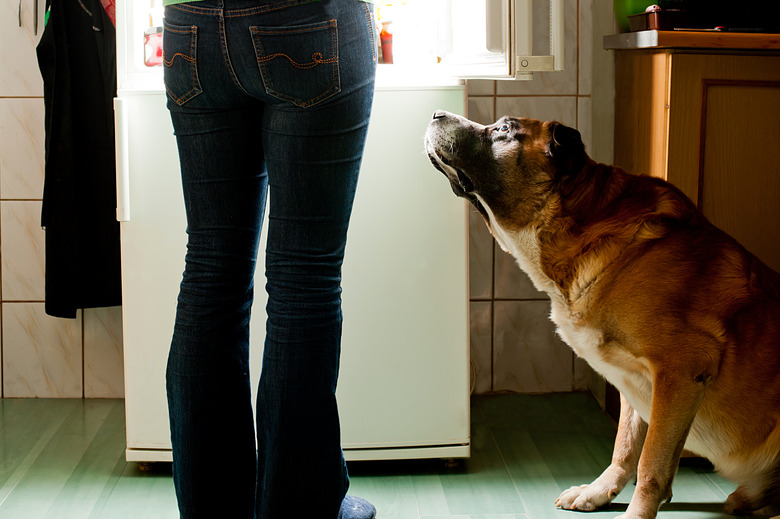Americans Are Making Their Pets Fat Now, Too
A new report has been released by Banfield Pet Hospital showing that pets, specifically dogs and cats, are increasingly overweight. And it's our fault.
Over the past 10 years, there has been a significant increase in the number of overweight animals from American households. This is not all that surprising — with the weight of the average American increasing by over 15 pounds since 1980, the fact that our pets are expanding, too, makes a lot of sense. The pets themselves aren't to blame for this obesity epidemic in the making — we are.
In fact, due to our own dramatic weight increase, it's possible that we haven't really noticed the same differences in our furry friends. "Obesity is so common that many people underestimate their pet's body condition," the report explains, "preventing them from taking action to manage their pet's weight."
All of the report's statistics were calculated by the Banfield Applied Research and Knowledge Team, part of a national chain of for-profit pet hospitals. The results were based on observations from 2.5 million dogs and 505,000 cats seen at Banfield Hospitals in 2016. The study, huge and well-funded had some serious implications about our pets' health.
What are we doing wrong?
The change is happening largely due to pets experiencing the two most widespread health taboos: lack of exercise and overeating. Pet owners are chronically overfeeding animals by rewarding them too often with food and treats. Additionally, pets are similar to people in that they require some form of consistent exercise to remain healthy. But with Americans being so inconsistent with their own movement routines — and, as a side effect, the routines of their pets — this isn't really happening for dogs and cats on a daily basis.
What can we do to help?
Some of it is out of our control. Sometimes, for instance, pets experience disease or injury that makes it difficult to keep off pounds.
In other cases, genetics are to blame. "Some pet breeds are more prone to obesity," the report reads. Research shows that Labrador retrievers and Manx cats are the breeds most likely to fall victim to obesity.
"Regardless if your pet is more prone to obesity or not," Banfield Pet Hospital pleads, "it is important to always partner with your veterinarian on a weight management program to ensure your pet is as healthy as possible throughout every life stage."
What does a weight management program entail? Exactly what you'd expect. Banfield Pet Hospital recommends keeping your pet active and keeping your pet's nutritional needs in mind. The best way to make sure you're not over or underdoing it on the treats is to consult your veterinarian.
While the specifics differ from pet to pet, if we care about our animals — and ourselves — we'll all have to hit the pavement and close the pantry.
